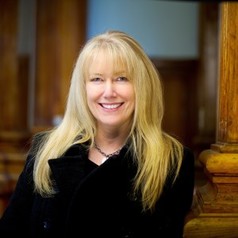
Claire Molloy
Claire Molloy is Professor of Film, Television and Digital Media, Director of the Institute for Creative Enterprise (ICE) and Director of the Centre for Human Animal Studies (CfHAS).
Her research interests focus on the critical junctures between media, film and Animal Studies; (un)sustainable consumption; eco-media; American cinema; activism; and, film and politics.
Her recent publications include the books Memento (2010), Popular Media and Animals (2011), Beyond Human: From Animality to Transhumanism (2012) and American Independent Cinema: indie, indiewood and beyond (2013). She is currently co-editing The Routledge Companion to Film and Politics. In addition, her recent work on popular depictions of animal cruelty, industrial-economic analysis of commercial wildlife films, a history of independent nature films, news coverage of dangerous dogs, representations of nature in commercial feature films, farmed animals product advertising, and neoliberal aesthetics have been published in various edited collections and journals.
Her research on news media discourses and the UK coastline forms one of four case studies on non-monetary valuations of nature (WP5) for the National Ecosystem Assessment (2013) and she is a contributing author to a guide on deliberative methods for non-monetary valuations of nature for policy-makers and key decision-makers (2014). She is a Fellow of the Oxford Centre for Animal Ethics, serves on the Vegan Society Academic Advisory Committee and the Minding Animals International Programme Committee, and is an advisor to the Animal History Museum. In addition to reviewing for fourteen different publishers and journals and the Social Sciences and Humanities Research Council, Claire is Consultant Editor for the Journal of Animal Ethics and on the Advisory Board for the Palgrave Macmillan Book Series on Animal Ethics.
Her current research examines various aspects of sustainable ethical food production, particularly where these relate to media regulation, meat and dairy consumption, and the tensions between sustainable consumption and neoliberal constructions of consumer pleasure. She is involved in research on women and wildlife filmmaking, media discourses on animal sentience and she continues to write about Christopher Nolan’s films.
Less ![]()
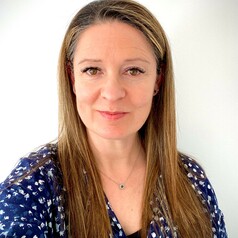
Claire Parker-Farthing
Senior Lecturer in Midwifery, Anglia Ruskin University
Claire is a midwife and Senior Lecturer in Midwifery in Cambridge, UK, at Anglia Ruskin University. She holds a honours degree in Midwifery Studies and Masters degree in Reproductive Health and Population Studies. She is an Associate Trainer with the charity Birthrights, and has been a health worker campaigner for Save the Children. Clinically she has worked in a variety of roles in the UK, including Consultant Midwife, Matron and midwife-led birthing unit manager, and overseas she has worked for medical aid agencies in both Cambodia and Liberia.
Less ![]()
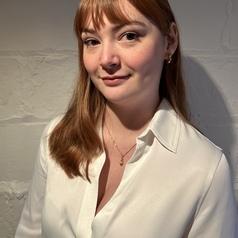
Claire Parsons
Researcher, Centre for International and Defence Policy, Queen's University, Ontario
Claire Parsons is a researcher with the Centre for International and Defence Policy where she works on quantum technology’s effects on the defence strategies of the Five Eyes alliance and the relationship between cybersecurity and climate change. Her research interests pertain to military affairs and international relations with her Major Research Project focusing on reducing the recruitment and retention of far-right radicals, white supremacists, and neo-Nazis into the Canadian Armed Forces. Claire holds a Master’s of Arts in Political Studies with a specialization in Nationalism, Ethnicity, Peace, and Conflict from Queen’s University. She was also recently appointed a 2024 Capstone Laureate of the Canadian Defence and Security Network. She holds a Bachelor's (Honours) Undergraduate degree in Political Studies and a Certificate in Law from Queen's University.
Less ![]()


Claire Rogerson
Research Fellow for the Centre of Excellence for the Digital Child, University of Wollongong
Claire Rogerson is an Early Career Researcher at the University of Wollongong, currently working as a Research Fellow, Post-Doctoral Fellow and Lecturer for the School of Education, Australian Research Council and Centre of Excellence for the Digital Child. Claire's research explores the way children and young people engage in a range of disciplines and settings, with particular focuses on creativity, datafication, artificial intelligence and social media.
Less ![]()
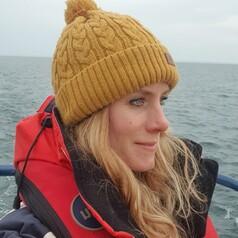
Claire Szostek
Marine Ecologist, Plymouth Marine Laboratory
Claire has over a decade of research experience in marine fisheries ecology, more recently focusing on the environmental and ecosystem service outcomes of offshore renewables. Claire works closely with industry, government and third-sector organisations and across the science/policy interface. She has an MSc and PhD from Bangor University.
Less ![]()
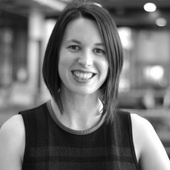
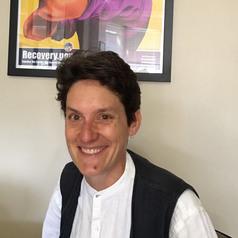
Claire Wendland
Claire Wendland is a professor in the Departments of Anthropology and Obstetrics & Gynecology at University of Wisconsin-Madison. She is the author of A Heart for the Work: Journeys through an African Medical School, the first ethnography of a medical school in the global South, and Partial Stories: Maternal Death from Six Angles. Trained as a cultural anthropologist and obstetrician-gynecologist, she researches medicine, metrics, and women's health in cross-cultural perspective.
Less ![]()
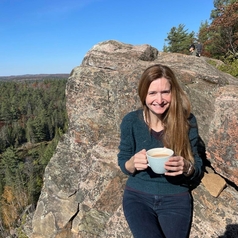
Claire Wicks
Senior Research Assistant, University of Essex
I achieved my PhD in Health Studies at the University of Essex. My research focusses on the psychological health benefits of green exercise, nature-based public health interventions, and green social prescribing. I have been involved in evaluating various nature-based initiatives at local and national level.
https://www.essex.ac.uk/people/WICKS38804/claire-wicks
https://orcid.org/0000-0002-8330-5373
Less ![]()
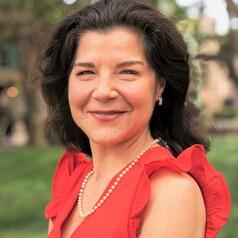
Claire Wofford
Associate Professor of Political Science, College of Charleston
Claire Wofford, J.D., Ph.D., currently holds the rank of Associate Professor and is also the Director of the Pre-Law Advising Program at the College of Charleston. She offers courses on American Government, Constitutional Law, Civil Liberties, and Equality and the Law at the undergraduate level.
Wofford’s research interests are in the field of American politics, with a particular emphasis on the U.S. legal system. Her work has appeared in Law & Society Review, Journal of Law & Courts, Justice System Journal, Political Science Quarterly, Politics & Gender, American Politics Research, and Journal of Political Science, among others. She is currently exploring whether and how litigants constrain judicial decision-making and how gender shapes the civil litigation process. Wofford has also offered commentary and opinion pieces for a variety of print, radio and television media, including The Baltimore Sun, The Post & Courier, Christian Science Monitor, Atlanta Journal-Constitution, Politico, and National Public Radio.
She earned her Ph.D. in Political Science from Emory University in 2011. She also holds a J.D. from Duke University School of Law and a B.A. in Political Science from Wellesley College.
Less ![]()

Claire Seungeun Lee
Associate Professor of Criminology and Justice Studies, UMass Lowell
Claire S. Lee, Ph.D., is an Associate Professor in the School of Criminology and Justice Studies and a Member of the Center for Internet Security and Forensics Education and Research (iSAFER). She is a Core Personnel of the Center for Asian American Studies and a Fellow of the Center for Public Opinion. Using her interdisciplinary and multilingual background, Lee’s research focuses on deviance and crime in cyberspace, cybersecurity, cyberterrorism, social media, and the social implications of social and new technologies. She studies these issues using quantitative, qualitative, computational, and mixed methodologies.
Lee conducts research focusing on comprehending the mechanisms and networks of deviant behaviors at both the state and individual levels, with a particular emphasis on those facilitated by cyber-resources or located in cyberspace. Additionally, she explores the online and offline behaviors and patterns of various social phenomena, as well as the behaviors of terrorists, extremists, and the general public.
Less ![]()
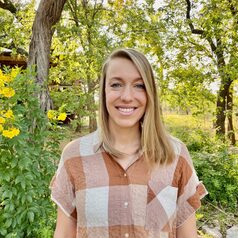
Claire Therese Hemingway
Assistant Professor of Ecology & Evolutionary Biology, University of Tennessee
My lab broadly explores in the mechanisms, outcomes, and evolutionary consequences of animal decision making. To address these questions, we study foraging behaviors in both bats and bees. Specifically, we ask how animals evaluate and make decisions between foraging options based on the signal and reward properties of each option. We also ask whether species differ in decision-making mechanisms based on their foraging strategy or other aspects of their ecology. Finally, we are interested in how certain decision mechanisms may shape the target of those decisions, such as floral signals and rewards.
Less ![]()
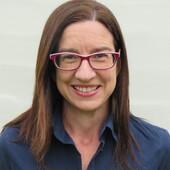
Claire van der Westhuizen
Associate Professor of Public Mental Health, University of Cape Town
Less ![]()
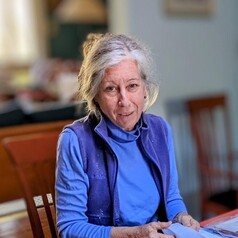
Claire Williams Bridgwater
Research Professor in Environmental Science, American University
Although a research professor at American University, I recently completed a MA degree in Global Studies at UNC-Chapel Hill. This I did after being inspired as a AAAS Fellow in Science Diplomacy at State Dept where I served as a science advisor at State’s Bureau of European and Eurasian Affairs. Tenured full professor at Texas A&M, I have published over 100 articles and three books. My career has mostly been academic but I have worked for corporate R&D, federal government and a consulting company specializing in solving problems at the research-policy interface. My interests are atmospheric biology, ecology and evolution - and now science diplomacy.
Less ![]()
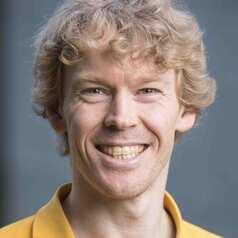
Clancy William James
Senior Lecturer (astronomy and astroparticle physics), Curtin University
I got my PhD from the University of Adelaide in 2009 for my thesis entitled "Ultra-High Energy Particle Detection with the Lunar Cherenkov Technique", in the field of astroparticle physics.
I then worked from 2009-2011 at Radboud University, the Netherlands, on the LOFAR radio telescope, before moving to Erlangen, Germany at the Friedrich-Alexander University of Erlangen-Nuremberg to work on the ANTARES and KM3NeT neutrino detectors. Since 2017, I have been based at Curtin University, Perth as part of the International Centre of Radio Astronomy Research. My current formal position is "senior lecturer".
Less ![]()
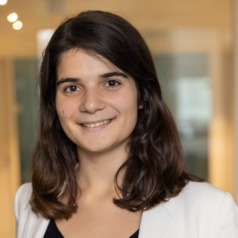
Clara Carrera
PhD Candidate in Technology and Operations Management, INSEAD
Clara Carrera is a PhD Candidate in Technology and Operations Management at INSEAD. Her research interests include circular economy, renewable energy operations, and behavioral operations. Prior to joining INSEAD, she worked in Paris at the Boston Consulting Group and at Amazon.
Less ![]()
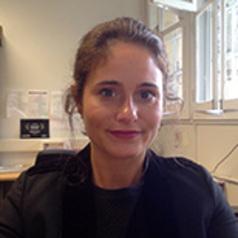
Clara Eroukhmanoff
Senior Lecturer in International Relations, London South Bank University
Clara is a Senior Lecturer in International Relations and the Associate Dean for Research & Enterprise in the School of Law and Social Sciences (London South Bank University). Her current research lies at the intersection of feminist writing in International Relations, gender and foreign policy, with a particular focus on feminist foreign policy, the remasculinisation of international politics and anti-genderism.
She is currently co-editing a book (with Hannah Partis-Jennings) on 'Feminist Policymaking in Turbulent Times: Critical Perspectives' (Routledge) which explores the growing integration of feminism and gender equality agendas in various areas of policy. In her chapter on 'French feminist diplomacy', Clara critically engages with this policy as a narrative and a strategic tool for France to re-brand itself as a 'feminist actor' on the international stage.
Less ![]()
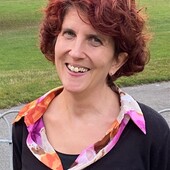
Clara Strauss
Professor of Clinical Psychology, School of Psychology, University of Sussex
Less ![]()
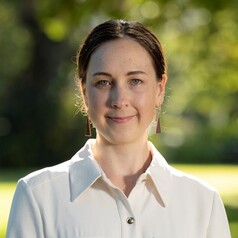
Clara Zwack
Lecturer in Physiotherapy, Swinburne University of Technology
Dr Clara Zwack is a qualified physiotherapist, researcher and educator. She has been working as a physiotherapist for eight years in a variety of settings, including community, post-acute care, sports, aged care and hospital. More recently, she completed her PhD at the Iverson Institute at Swinburne University of Technology, whereby she undertook a study exploring the cardiometabolic risk profile of young adults with intellectual disability. Following, she completed two years of post-doctoral studies at the University of Sydney, looking at modernising cardiovasuclar rehabilitation practices. Clara has since returned to Swinburne University in a lecturing capacity and is currently teaching Masters of Physiotherapy students in multiple subjects.
Clara's ongoing research focus is in the areas of disability, digtial health, cardiac rehab, science of science and physical actvity during complex pregnancy. In recent projects she has collaborated with the the National Heart Foundation Australia, Medibank and Yooralla, with whom she has ongoing industry partnerships.
Less ![]()

Clare Alley
Lecturer in Psychology, University of Salford
Clare Allely is a Lecturer in Psychology at the University of Salford in Manchester, England, and is an affiliate member of the Gillberg Neuropsychiatry Centre at Gothenburg University, Sweden. Clare is also an Honorary Research Fellow in the College of Medical, Veterinary and Life Sciences affiliated to the Institute of Health and Wellbeing at the University of Glasgow.
Clare holds a PhD in psychology from the University of Manchester and has previously graduated with an MA (hons.) in Psychology from the University of Glasgow, an MRes in Psychological Research Methods from the University of Strathclyde and an MSc degree in Forensic Psychology from Glasgow Caledonian University. Between June 2011 and June 2014, Clare worked at the University of Glasgow as a postdoctoral researcher.
Less ![]()
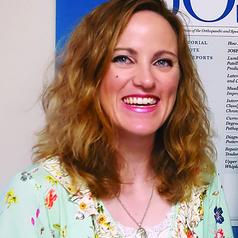
Clare Ardern
Assistant Professor in Physiotherapy, University of British Columbia
Clare is an Australian-trained physiotherapist. Her research work brings researchers, patients, clinicians and health policy makers together to find and build new solutions to challenging problems in musculoskeletal health. Clare’s expertise in sports medicine, rehabilitation and meta-research has been honed over more than a decade working in clinical and research environments in Australia, Qatar, Sweden and Canada. She is interested in (i) using everyday technology in clever ways to break down barriers to people accessing quality musculoskeletal health care, (ii) measuring the impact of health research on public policy, the economy and society, and (iii) equity in research funding and health care.
Less ![]()
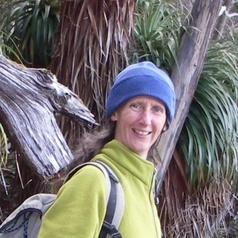
Clare Buswell
Adjunct Lecturer, History, Archaeology, Indigenous Studies and Geography, Flinders University
Less ![]()
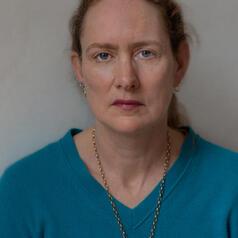
Clare Carolin
Senior Lecturer, Art and Public Engagement, King's College London
My work focuses on the intersection of contemporary art and various forms of state violence including socially detrimental urban overdevelopment and militarized force. I research how art, artists, architects, and urban planners have been implicated in the exercise of hard and soft state power, ‘inadmissible heritage’ in public collections, and artist monitoring by the state. Conversely, I explore visual histories of interracial solidarity and work to develop revisionist curatorial formats that reinterpret the art of the past.
My doctoral research combined contemporary art history and theory with security, intelligence, and media studies to investigate officially commissioned art during the Irish ‘Troubles’ and the 1982 Falklands/Malvinas conflict. My monograph based on this study 'The Deployment of Art' will be published by Routledge in 2023.
I was Exhibitions Curator at the Hayward Gallery (1999-2007), Senior Curator at Modern Art Oxford (2009-10), and Deputy Head of the Curating Contemporary Art Department, Royal College of Art (2007-2014). Recent projects include 'The Surface of the World: Architecture and the Moving Image' (Museum of Contemporary Art and Design, Manila, Philippines, 2014-17); 'Spectres of Modernism: Artists Against Overdevelopment' (Bowater House/Raven Row, London 2017-18) and 'Open Plan: Communities in Contemporary Art' (South London Gallery, 2022) (co-edited with Carey Robinson). I have worked in a freelance and associate capacity with diverse visual arts organisations including Tate; Kettle’s Yard, Cambridge; South London Gallery and the Alytus Biennale (Lithuania).
My doctoral research combined contemporary art history and theory with security, intelligence, and media studies to investigate officially commissioned art during the Irish ‘Troubles’ and the 1982 Falklands/Malvinas conflict. The monograph based on this work appears in 2023 (Routledge) addressed to their art, heritage, intelligence, social movement, and media studies lists. This feeds directly into the design of my next research project which explores interracial solidarity tactics and visual activism linking Northern Ireland and Black America during the 1960s, 1970s and 1980s. I will analyze contemporary art, political film, murals, and embodied protest actions to investigate how activists in Northern Ireland looked to the visual imagery of Black America as the basis for resistance and solidarity and ask if, and how that ‘look’ was returned. Planned research outputs for that project include a second monograph which will have wide appeal given current interest in interracial solidarity and anti-Imperialist struggle.
Less ![]()
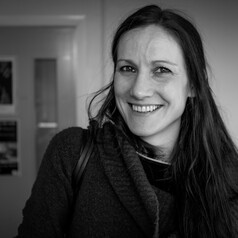
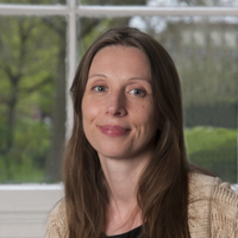
Clare Downham
Senior Lecturer, University of Liverpool
Clare was a student at St Andrews and Cambridge. She worked as a research scholar in Dublin and as a lecturer in Celtic and History in Aberdeen before starting at Liverpool in 2010. Her publications to date have focused on Viking Age history. Her current research interests focus on contact across the Irish Sea in the Middle Ages.
Her research interests include Medieval Europe, especially Britain and Ireland AD 400-1350.
Less ![]()
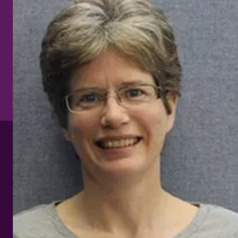
Clare Eglin
Principal Lecturer in the School of Sport, Health, and Exercise Science, University of Portsmouth
I am a part time Principal Lecturer and leader of the Physiology Division. I am accredited by BASES for physiology research. After gaining my PhD in physiology at the University of Sheffield I worked as a research fellow for six years at the Universities of Surrey and Portsmouth before becoming a lecturer in 2001. My main research interests are in human and applied physiology including thermal physiology and occupational physiology.
My research interests are fairly broad in the area of human and applied physiology. My research in thermal physiology has ranged from the responses to extreme heat, to survival in cold water. In addition, I have also conducted studies on the energy expenditure of playing video games and the IL6 response to exercise. I am currently undertaking studies in non-freezing cold injury.
Less ![]()
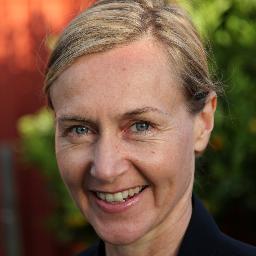
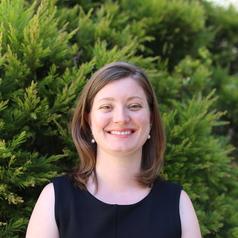
Clare Holleley
Senior Research Scientist, Australian National Wildlife Collection, CSIRO
Dr Clare Holleley is a Research Scientist at the Australian National Wildlife Collection, within National Research Collections Australia CSIRO. Her research is on sex chromosome genomics and molecular ecology. She has published 21 refereed scientific papers, including a first author cover article in the journal Nature. She received the 2014 ACT Young Tall Poppy Award for research excellence, public engagement and scientific leadership in Australia.
Less ![]()
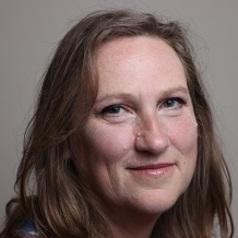
Clare Jackson
Senior Lecturer in Sociology, University of York
I am a Senior Lecturer in Sociology at the University of York. My teaching includes conversation analysis (CA) and modules attached to the social psychology pathway.
My research uses CA to study the interactional accomplishment of decision-making in clinical settings. From 2015-2017 I worked on a project that analysed how choice is offered in neurology consultations. Since 2017, I have been working on how decisions are made in the interaction between labouring women, their birth partners and healthcare practitioners in midwife-led units.
Less ![]()
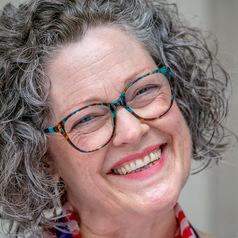
Clare Jouanny
PhD Candidate, Pelvic Health Conditions, University of Stirling
I am an experienced Specialist Physiotherapist in pelvic health, having set up and run a pelvic, obstetric, and gynaecology physiotherapy service in Jersey, Channel Islands. My particular clinical interests are in prolapse, pelvic floor dysfunction prevention, and persistent pelvic pain.
Having completed my Master of Health Research degree at the University of Stirling in 2019 with a research-based learning prize for best Health Sciences Research Project, I won funding from the ESRC/ Scottish Graduate School of Social Science in 2020, for a PhD to develop an intervention to encourage women to seek help sooner with early prolapse symptoms.
I am passionate about raising awareness of pelvic health conditions in general, and prolapse in particular; to raise awareness amongst women and health care professionals, encourage earlier help seeking, advocate for evidence informed lifestyle and conservative treatments, and prevent negative effects on quality of life.
Less ![]()

Clare Kelliher
Professor of Work and Organisation, Cranfield University
Professor Clare Kelliher is Professor of Work and Organisation at Cranfield School of Management, Cranfield University. She is a Fellow of the Academy of Social Sciences and holds a PhD in Organisational Behaviour from London Business School. Her research interests focus on the Changing World of Work, specifically the organisation of work and the management of the employment relationship. She has a long-standing interest in and is renowned for her research work on flexible working arrangements. She has recently directed an Economic and Social Research Council funded project designed to examine how the use of the government’s furlough scheme during the pandemic has influenced opportunities for part-time working. Her research has informed the work of government, policy groups and shaped employer practice, including contributions to the Agile Futures Forum, Engage for Success and the Department of Education’s Flexible Working in Schools project. Clare is the author of numerous journal articles, books and book chapters and is a regular speaker at national and international conferences. She is a member of the International Women’s Forum.
Less ![]()
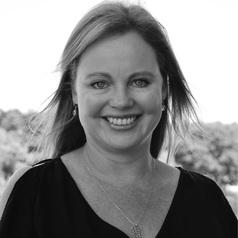
Clare Kelso
Associate Professor, University of Johannesburg
Prof. Clare Kelso is an environmental geographer whose research focuses on climate and environmental history, rural livelihood vulnerability and sustainability. She currently holds the position of associate professor and head of the Department of Geography, Environmental Management and Energy Studies at the University of Johannesburg. She began her career in 1997 as a junior geography lecturer at Vista University, Soweto campus. Prof. Kelso has supervised a number of Masters and PhD students in topics focusing on rural livelihood vulnerability and change, on the interface between conservation and local communities and on the gendered nature of the impacts of climate change in rural communities. Underlying these research focus areas is the central aim to identify sustainable and equitable solutions to complex environmental and social problems. Geographically, the focus of her research has been South Africa, although she has supervised students who have undertaken related research in Tanzania and the Cameroon.
Link to talk on Womanity in Africa
https://womanity.africa/2021/11/17/climate-change-and-gender-with-prof-clare-kelso-university-of-johannesburg/
Less ![]()
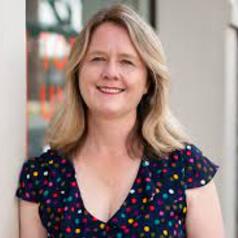
Clare Littleton
Associate Professor and Deputy Director of the Centre for Healthy Sustainable Development, Torrens University Australia
I am Associate Professor at Torrens University Australia and Deputy Director of the Centre for Sustainable Development (Acting).
I conduct research in the area of public health with a specific focus on children, the social and political determinants of health, health equity, education, and public policy. My research focusses on addressing complex policy issues through cross disciplinary research, specifically public health and political science. Through my research I aim to bring about social change, address equity issues, and contribute to addressing the UN sustainable development goals.
I teach across a range of different topics in the Master of Public Health (MPH) at Torrens University including the social and political determinants of health, health policy and advocacy, qualitative research methods, and Capstone research projects. I am currently subject lead for the Health Policy and Advocacy Course in the MPH. I am also involved in curriculum development and most recently wrote the new Health Policy and Advocacy topic.
Less ![]()
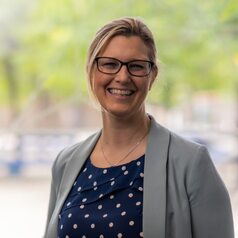
Clare MacMahon
Associate Professor in Motor Learning and Skilled Performance, La Trobe University
Clare MacMahon completed an Undergraduate degree in Psychology from McGill University, a Masters in Human Kinetics from the University of Ottawa, and a PhD in Human Biodynamics from McMaster University. After completing a Postdoctoral Research position funded by the Canadian Social Sciences and Humanities Research Council at Florida State University in Cognitive Psychology, Clare moved to Australia to work within Sport and Exercise Science at Victoria University, Swinburne University, and currently at La Trobe University. She has worked in the research and application of skill acquisition and talent identification principles within Defense contexts, and professional sports such as Australian Rules football, Cricket, and Tennis.
Less ![]()
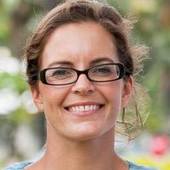
- Market Data























